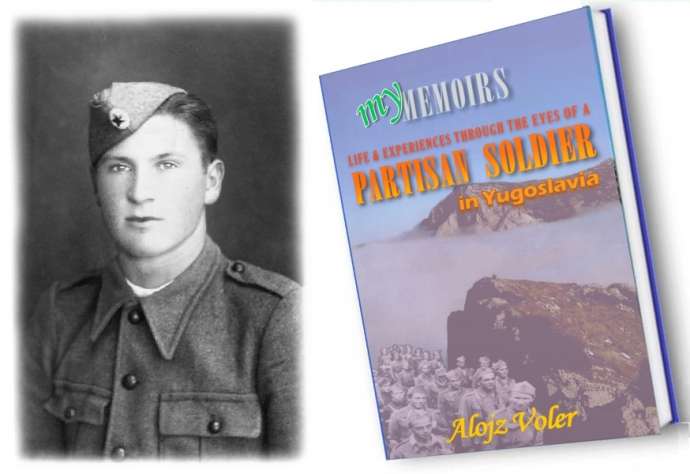Last week we posted an interview with Ralph Churches, a former Australian soldier who spent time as a prisoner of war in Slovenia, before escaping in a daring adventure known as the Raid at Ožbalt, or “the Flight of the Crow”. We first become aware of his story because of a new book published in English, a first person account of life as a Partisan solider in the Second World War, written by someone who was part of the same adventure. Curious to learn more, we got in touch with the translator, Robert Posl, and asked how he came to work on this project, and what he learned.
First of all, what’s your connection with Slovenia?
My parents originated from the former Yugoslavia. My father from near Rogatec, my mother from Croatia, near Zadar. She moved to Slovenia, where she met my father. In 1970 they moved to Germany. My father simply did not see a future staying in Yugoslavia.
I was the third child, born in August 1974. In spring of 1975, we moved to South Africa. The apartheid regime of South Africa was in full swing and was encouraging and inviting people to move to South Africa. So that's what my parents did, along with their three toddlers. I obviously don't remember any of that, since I was barely six months old.
We lived quite a decent and progressive life in South Africa. We as children had no contact with Yugoslavia. And even though my parents had brothers and sisters in Yugoslavia (Slovenia and Croatia), they too had almost no contact. The Communist way there was distinct and powerful until the 90's, when everything started to change. The war in Slovenia was short, only four days, with barely any conflict or anything.
Slovenia was then 'free' and with a promising future, quickly stepping forward to becoming a European nation. We started hearing about relatives we had never heard about before. Then in December 1991 my uncle and his wife came to visit us in South Africa. While things were looking quite promising for Slovenia, the opposite was for South Africa, as the apartheid era was coming to an end. So the obvious happened, the decision to move to Slovenia quickly grew.
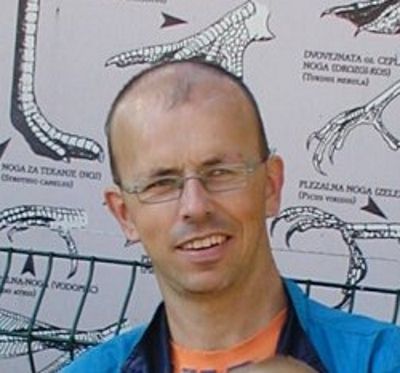
Robert Posl
And so you moved back?
Yes, and after moving from South Africa to Slovenia, to Europe, I felt that I was now properly introduced to history. Moving from a country which has bareky any history compared to that of mainland Europe. Most of the countries in Europe have also put significant efforts into maintaining and restoring their cultural heritage, so now I could see and even touch it, compared to only reading about it. Slovenia is thus dotted with numerous buildings and monuments, which clearly express its history. Especially the countless number of memorials and plaques reminding us of the Second World War.
One thing I heard about a lot about the Partisans. The most common thing I’d hear was how difficult it was and how they lived in poverty and in hunger, with ragged clothes and inadequate equipment. My reaction was obvious, “who would want anything like that? So unpleasant!”
So that’s how you came to translate this story?
Yes and no, because there’s more of a family connection than just an interest in history. Some years ago my wife’s uncle, Alojz Voler, published his autobiography and experiences during the war, when he served with the Partisans. Alojz kept the publication quite quiet, mainly only sharing it with relatives and acquaintances. I paged through it a couple of times, reading some sections and admiring the photos.
Then in the spring of 2017, a car with foreign registration plates stopped in front of his house. They were from England, except for the translator who was with them. They were looking for a man who was involved in a remarkable event during The Second World War, “The Flight of the Crow”. A team were in Slovenia making a movie about this great event, something most people didn’t even know happened.
When I learnt more and that Alojz was involved in it, I right away suggested that his autobiography be translated into English and to include the details of this event. The more I thought about it, the more I saw the need for this to be done.
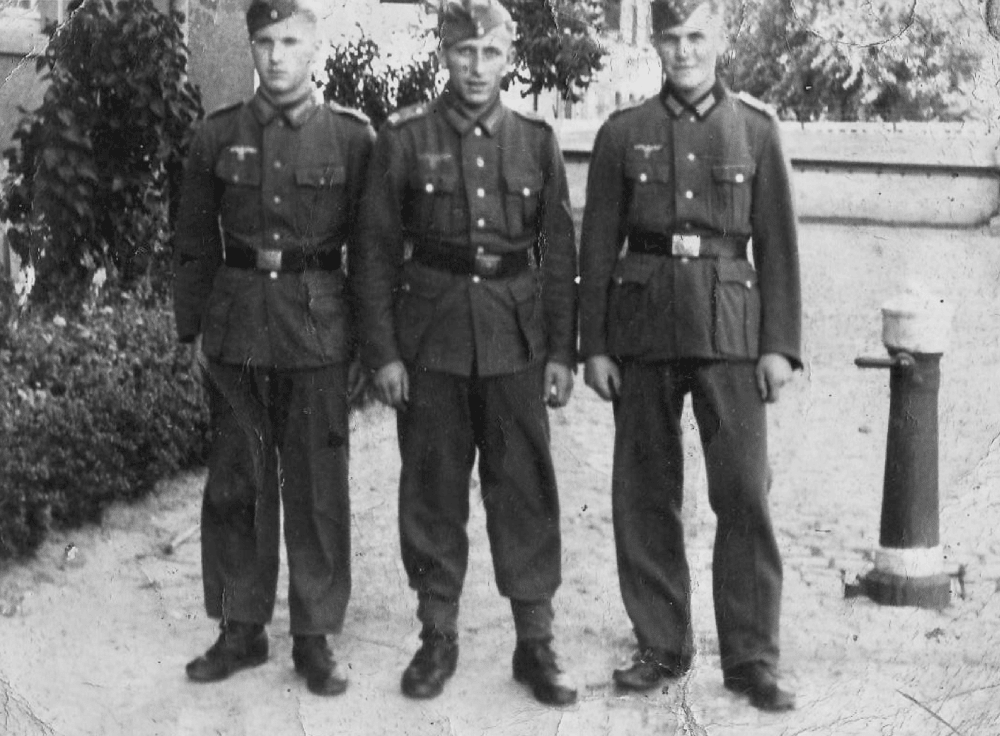
Alojz Voler, with German recruits. He served in the German army for 14 months before he managed to desert them and return to Slovenia, where he then joined the partisans.
What was that like?
I got to know more of the details and specifics about Alojz and the life he lived. He was born in 1925 on a farm in the Savinja Valley in Northern Slovenia. Not only was I getting to know him, but I was also getting to know what it was like living in that period. The onset of the Second World War and the influence of the aggressors, which was long felt before the conflict even started.
The Second World War was for Yugoslavia more than just the invasion and engagements with German forces. A significant part of it was the tension and politics within the country itself. Already in primary school, Alojz would be tolfd negatuve things about the Partisans, and how they lived in hunger and poverty. Surprisingly, it was allo very to what I so often heard when I moved to Slovenia.
For Alojz to follow his heart was a journey in its self, and to join the Partisans was an almost unimaginable and treacherous step to make. I admire how Alojz expresses this idea: To go into resistance with almost bare hands, against the most elite forces of the world at that time, was an almost fantasy. But it was no fantasy, it was the cruel reality.
Starting with this translation at first only fed fuel to the fire of my curiosity. What kind of person, and why, would want to be part of the Partisans? But by following Alojz’s life throughout his book, my questions were answered.
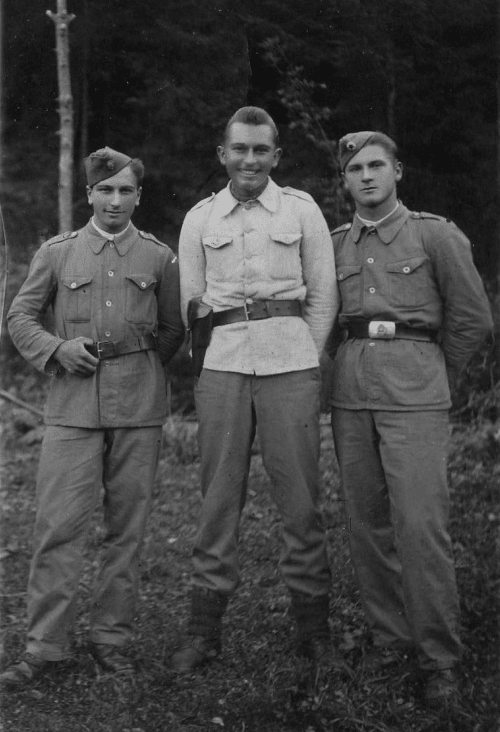
Alojz on the right, with other members of the KNOJ (Korpus narodne obrambe Jugoslavije). Photo taken after the war ended.
The book obviously has many other stories, but how was Aljoz involved in the “Escape of the Crow”?
The battalion Alojz was in was based to the west of Maribor, nearby the Ožbalt work camp. Some of the Partisans were chosen to escort a group of six POWs, including Ralph Churches, away from the area ASAP. The next day they returned and managed to free the rest of the captives, and it was then that Alojz met and helped them to safety and away from Ožbalt before the Germans intensified their search for the prisoners.
Here is a photo, which is also on the cover of A Hundred Miles as the Crow Flies. The guy on the left, almost out of the picture is Franjo Gruden, the leader of the escort team. Alojz was at the back to make sure nobody fell behind.
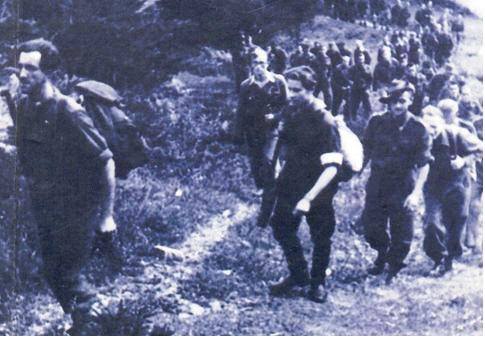
And here is a map I made for the book. You can see where they went, up to Gornji Grad, then another group of partisan soldiers took over to escort them further.
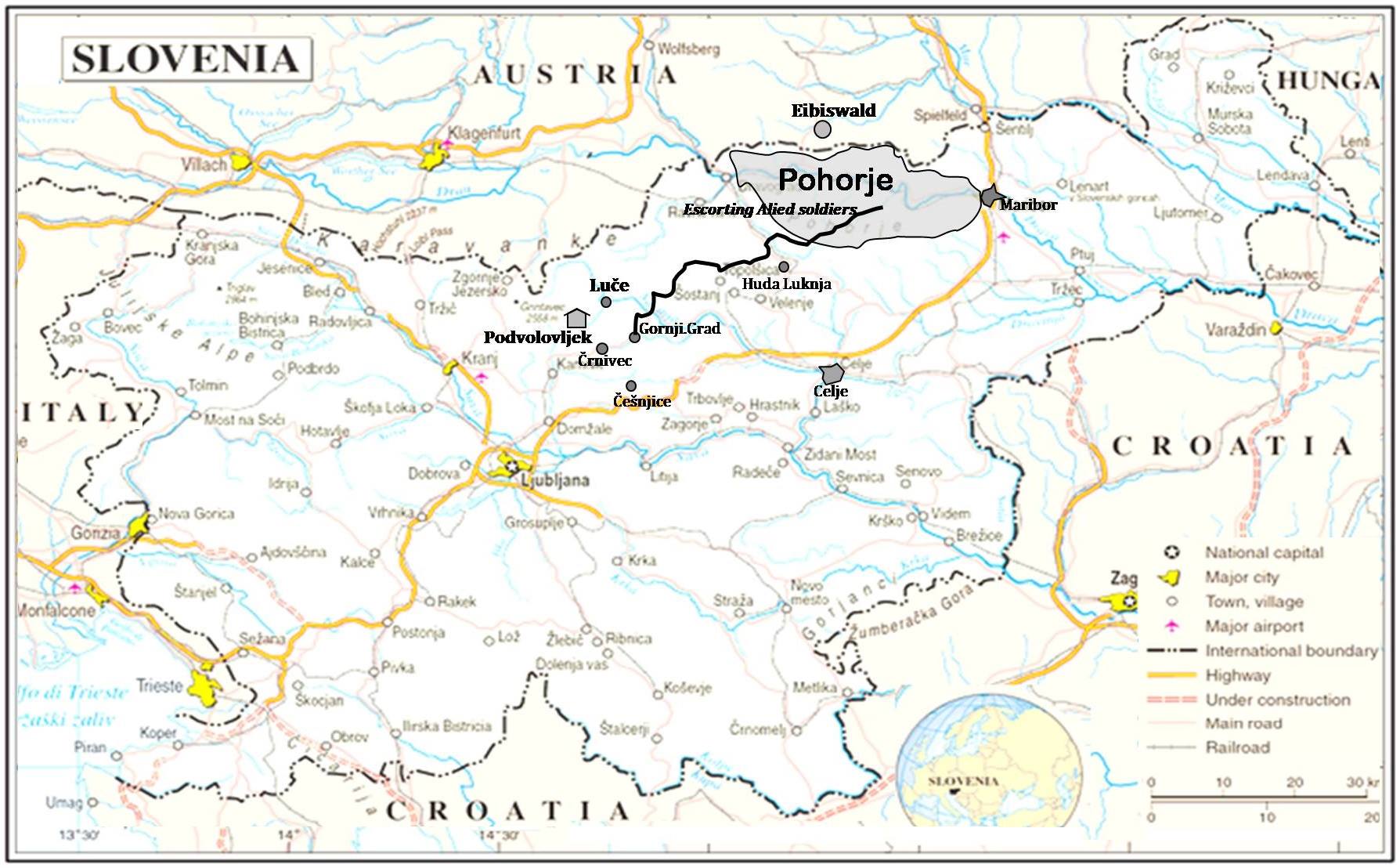
And what you have learned from the book?
For me the most important things about working on this project are being able to share a part of history, but more than that, it’s about giving Alojz that feeling of pride. At 94 years old it’s quite something that his story is finally being told, and that he’s the one to tell it. And so I hope that more people will hear about him and what he did during the war.
While doing the translation, and still after, people would ask me: “Who is paying for this? How much are you being paid?” My answer – Alojz has paid me; with the truths and experiences from his heart, as seen by an ordinary, humble man. And with the knowledge, that I can now confidently say, “I know who and what the partisans really were”.
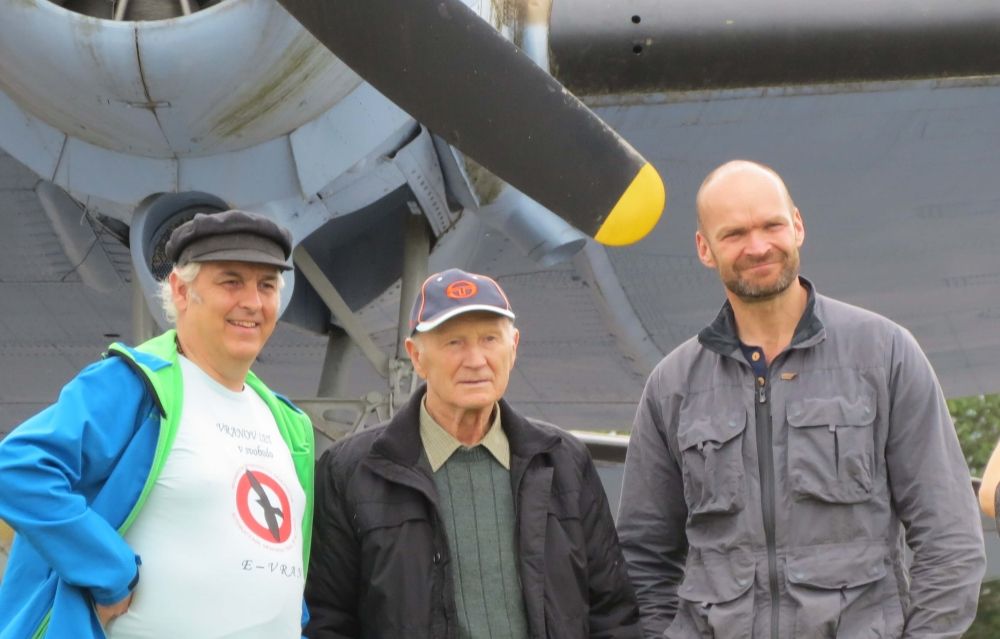
Alojz Voler, Niel Churches & Monty Halls, Spring 2017
If you’d like to read Alojz’s story, Through the Eyes of a Partisan Soldier, then you can pick up a copy, in both paper and digital forms, from Amazon, while all our stories on World War Two are here

